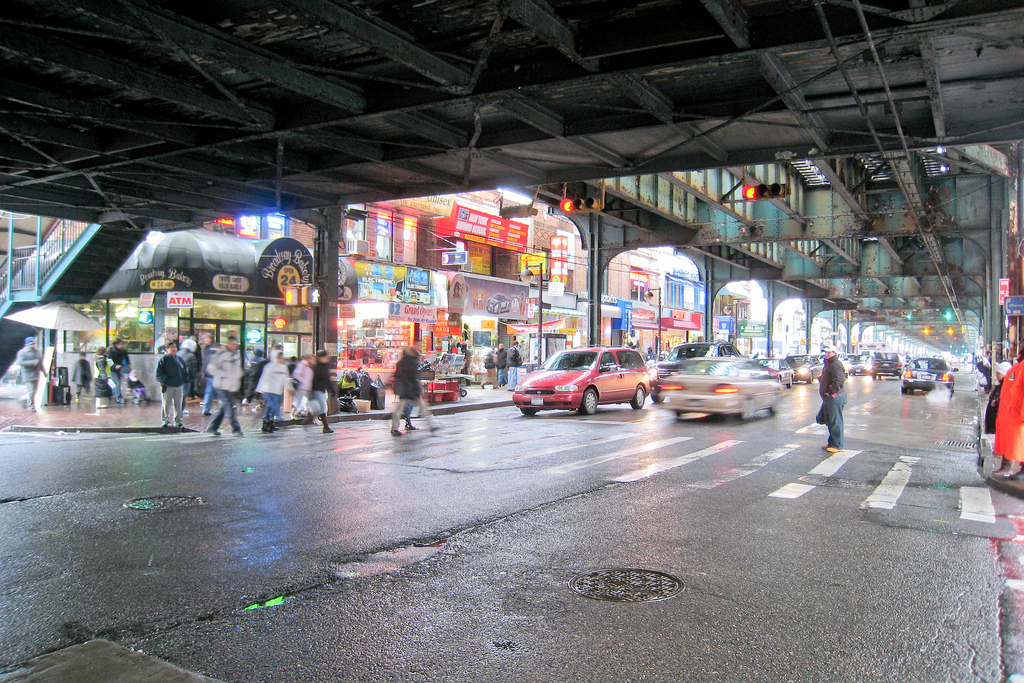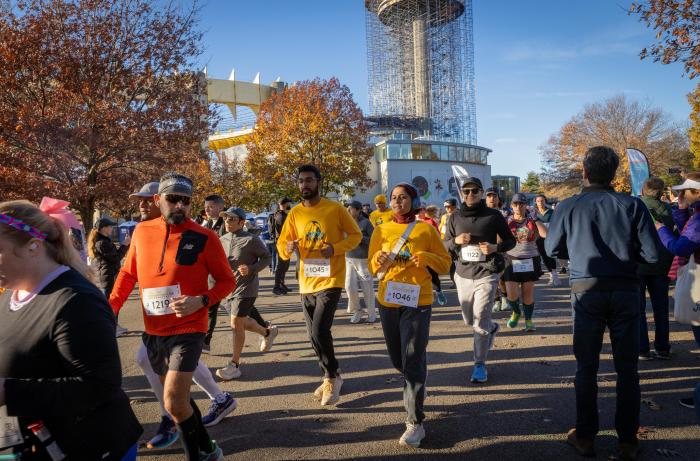State Senator Jose Peralta wants to “clean up” Roosevelt Avenue and he is asking the city to put a moratorium on liquor licenses for new nightclubs along the busy corridor.
Roosevelt Avenue spans parts of Peralta’s Senate District 13 in Elmhurst, Jackson Heights and Corona. The avenue is home to dozens of bars that act as nightclubs without proper licenses and is a hotbed of illegal activity, the senator said at a press conference on Aug. 29. He called Roosevelt Avenue “the new old Times Square.”
“Traditional bars and restaurants make Roosevelt Avenue and its nightlife an attractive place to dine and have a drink,” he said. “But when night falls, the corridor metamorphoses into a noisy and salacious place, which is undesirable for area residents.”
He called on the State Liquor Authority (SLA) to enforce a one-year ban on new liquor licenses along the corridor.
Only six establishments on Roosevelt Avenue between 74th Street and 114th Street hold valid cabaret licenses but Peralta argues that “dancing occurs in many more places than those six.” The senator is also calling on the Department of Consumer Affairs (DCA) to increase enforcement of cabaret license laws and introduced legislation authorizing DCA to impose fines of up to $10,000 for violations of cabaret licensing rules.
Peralta also proposed the formation of a 11-member Commission on Roosevelt Avenue which would include the commanding officers of the 110th and 115th Precincts, the commissioner of DCA, representatives of Community Boards 3 and 4, representatives for merchants along the corridor, the Department of Sanitation, the Department of Health, the SLA and the Fire Department.
The commission would release a report within a year of its creation to establish “a roadmap to turn around the thoroughfare and revive the economic engine of its surrounding communities.”
Under this proposed legislation, DCA would be allowed to fine businesses with a cabaret license up to $10,000 for each violation of the rules, as well as a 60-day license suspension. Businesses operating as nightclubs without the proper license could be slapped with fines of up to $10,000 and the DCA would be able to take these violations into account when the business reapplies for a cabaret license.
Community boards would also have a say in which businesses can receive a cabaret license. The DCA could reject any plans for a new or renewed cabaret license if a Community Board determines that the business “will have a negative impact in the surrounding neighborhood,” he said.
Peralta argued that some of the city’s best attractions are situated along or near Roosevelt Avenue including Citi Field, Flushing Meadows Corona Park and the Billie Jean King National Tennis Center, but that the corridor is “in a state of disarray.”
“Criminal activity is all too common along Roosevelt Avenue,” Peralta said. “Prostitution, drugs, the sale of fake identification documents, and unscrupulous agents providing false hope of employment to immigrants, as well as apartment rental scams. All these bad actors have hindered development in neighborhoods like Jackson Heights, Corona and Elmhurst. So, today I am saying: enough is enough.”
The senator also said that the NYPD’s enforcement of cabaret license laws were “lacking” and that they should “develop a strategy to tackle the pervasive problems that exist under the elevated tracks of the 7 train.” He argued that a program such as Operation Impact should be re-established. Outgoing Commissioner Bill Bratton discontinued the program, which put rookie officers in 20 high-crime zones where they would engage in stop-and-frisk policies.
Bratton argued that the program lowered morale and and left rookie officers inadequately supervised.




































